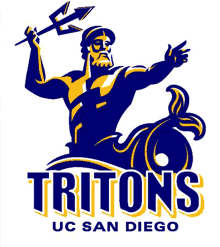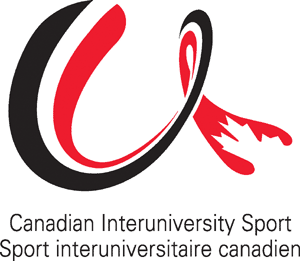After almost a year, the NCAA Division II Review Committee has finally released its final report regarding UBC-V’s potential application to NCAA Division II. At 588 pages including appendices it’s a monster, but unless you are an absolute nut for documents, the first 28 should suffice, along with the Consultation Summary Report which was posted online earlier this month (also included in the overall report).

So what exactly does it say?
I will mention at this point that I sit on the NCAA committee as a representative of the AMS (and by extension, students at large) and was involved in the whole process of arriving at this final document, so I hope you’ll excuse me if I’m very careful in my analysis. I should also point out the obvious fact that I am speaking on behalf of myself only, not on behalf of the committee.
I would also like to say that at the beginning of this process, many people had fears that this would be a rubber-stamp, faux-consultation situation. I hope that after reading the report and consultation summary, no one continues to feel that way.
The first important thing to note in this report is what it doesn’t say. While there are recommendations contained within, it does not take a stand on the whole underlying issue: should UBC join the NCAA Division II?
While the committee could not come up with a definitive answer, President Toope will have to (but not necessarily soon.) Publicly he has been very quiet on the subject of the NCAA and it’s impossible to guess what the final outcome will be.
-=-=-=-=-=-=-=-=-=-=-=-=-=-=-=-
Do you agree or disagree that UBC Vancouver should proceed with an application for membership in the NCAA Division II?
Agree – 48%
Disagree – 52%
-=-=-=-=-=-=-=-=-=-=-=-=-=-=-=-
What is clear is that it will take a lot of leadership to simply make a decision – any decision. One of the recommendations contained in the report is that UBC complete its communications plan prior to announcing its decision. The cynical view of this recommendation is that UBC will be trying to use a PR campaign to push through an unpopular decision. Unfortunately for UBC and the cynics out there, any decision they make will be unpopular, which is why this recommendation is vital. If public opinion above is to be believed, the outcome is the same: you’re damned if you do and you’re damned if you don’t.
-=-=-=-=-=-=-=-=-=-=-=-=-=-=-=-
Recommendation A: Should UBC Vancouver decide to proceed with an application for membership in the NCAA Division II, the committee recommends that the University, prior to making any application for membership, seek an exemption from the requirement of academic accreditation.
-=-=-=-=-=-=-=-=-=-=-=-=-=-=-=-
This is a BIG DEAL. NCAA bylaws require all member institutions to be accredited by a US accrediting agency. While some faculties like Sauder and Medicine already get US accreditation, most of the university doesn’t. As mentioned in the report, the accreditation process would cost, at minimum, $500k-$1M every year. The university would be the one paying for this, diverting these funds from research and learning. Dealbreaker #1.
As well, many areas of the university would have to alter the way they develop curricula to suit the new accreditation requirements. You would need widespread buy-in from faculty to make this happen and that doesn’t seem likely. Dealbreaker #2.
Seeking US accreditation simply so that our sports teams can play in the NCAA is absurd. It’s possible that the NCAA could exempt UBC from this accreditation requirement, with the recognition that we already have Canadian accreditation and oh yeah, we’re pretty reputable to boot. If that exemption comes, the door to the NCAA is still open. If not, that door is slammed shut.
-=-=-=-=-=-=-=-=-=-=-=-=-=-=-=-
…members of Division II believe that a well-conducted intercollegiate athletics program, based on sound educational principles and practices, is a proper part of the educational mission of a university or college and that the educational well-being and academic success of the participating student-athlete is of primary concern.
-From NCAA Division II Philosophy Statement
-=-=-=-=-=-=-=-=-=-=-=-=-=-=-=-
One of the things that needs to be made clear is that Div II != Div I, and that’s a good thing. Div II does have a strong commitment to academics and it appears this commitment isn’t simply idle chatter. It was refreshing to learn that schools in Division II take this ethos seriously and practice it.
-=-=-=-=-=-=-=-=-=-=-=-=-=-=-=-
The committee believes that were UBC Vancouver to join the NCAA Division II, there would be an inherent pressure to seek membership in Division I.
-=-=-=-=-=-=-=-=-=-=-=-=-=-=-=-

Of course, it’s never that simple, right? UC-San Diego is a fascinating case study and the only academic comparator to UBC in Division II. Formerly a Division III school, they moved up to Division II because they were simply too large of a school to fit with other Division III schools. Despite moving up, they are now facing pressure to move up again, to Division I. Alarmingly, it is believed that if UBC were in Division II, we would also be under constant pressure to move up to Division I. For UBC, the thought of Division I should be absolutely out of the question for so many reasons that I don’t have enough fingers and toes to count them.
Much of this pressure to move up is inherent in being an institution which is much larger than your peers. Based on my research, of the 282 Division II schools, only 6 have more than 20,000 students (UCSD is second most populous, at ~29,000). UBC would easily eclipse those schools in size. If UCSD were to move up to Division I, UBC would be left with no academic comparators in Division II, likely adding even more pressure for UBC to move up as well.
-=-=-=-=-=-=-=-=-=-=-=-=-=-=-=-
The student body at the University of California, San Diego, an academic comparator to UBC Vancouver, exhibits a level of campus interest in varsity athletics that is not dissimilar to that seen at UBC Vancouver. This is explained in part by the fact that students do not see the competing Division II member institutions as what can be termed “fraternal institutions”.
-=-=-=-=-=-=-=-=-=-=-=-=-=-=-=-
In the consultation discussion guide the only potential benefit listed for regular students is “enhancing school spirit and pride”. The committee found that it is extremely unlikely that having the NCAA on campus will have any positive effect on fan support. In fact, it might even get worse since the Division II schools have zero name recognition. Getting people out to games requires marketing, plain and simple, and that can be done regardless of where UBC plays.
-=-=-=-=-=-=-=-=-=-=-=-=-=-=-=-
These financial indicators suggest that Athletics and Recreation is in a sound financial position as evidenced by its seven-figure net income in each of the past two years.
-=-=-=-=-=-=-=-=-=-=-=-=-=-=-=-
The revelation that UBC Athletics is in a good financial situation should come as news to no one. Although Athletics has certain unrealistic financial expectations regarding joining the NCAA (such as >100% increase in gate revenues), in the short term joining the NCAA wouldn’t change the budgets much.
What happens after the short term is the unanswered million-dollar question (or more likely a multi-million dollar question). UBC’s varsity budget currently stands at about CAD$4.5M. The average varsity budget of a NCAA Division II school with football in the first quartile is around USD$9M (at current exchange rates, about CAD$11M.) As mentioned above, UBC would be by far the largest school in Division II. In the long term, would UBC Athletics be happy at current varsity funding levels? Or would they try to drastically increase their varsity budget to bring it in line with other large Division II schools?
So what about UCSD, who moved up from Div III? Well, in 2007 they passed a fee referendum that saw their athletics fee more than triple, going from $95 to $329 (!) This increase effectively doubled the budget of their athletic department, in order to put them in the same realm as other large Division II schools.
-=-=-=-=-=-=-=-=-=-=-=-=-=-=-=-
UBC Vancouver’s consideration of application for membership in the NCAA Division II has proved a catalyst for opening discussions about changes to the CIS.
-=-=-=-=-=-=-=-=-=-=-=-=-=-=-=-

Canadian Interuniversity Sport (CIS) is still a big question mark, in that they have been oddly silent. While there have been meetings between UBC and CIS officials, nothing particularly notable came out of them. CIS did release a document last October in an attempt to demonstrate their commitment to excellence but it isn’t clear if action is following their words. While visiting Ottawa in February, I went into the CIS offices to ask if they had released anything else relevant since then. The answer was no.
Whether or not CIS intends on changing anything is still a mystery. Hopefully more will be revealed at the CIS AGM in early June. Bob Philip was asked about whether he would still want to be in the NCAA if CIS were to adopt NCAA-style financial aid rules and a higher calibre of play. The response was a non-committal. For athletics, it seems like the dislike of CIS goes deeper than just the rules on the surface.
-=-=-=-=-=-=-=-=-=-=-=-=-=-=-=-
The committee observed that the operations of UBC Athletics and Recreation were not well understood by the academic units of the university.
-=-=-=-=-=-=-=-=-=-=-=-=-=-=-=-
And that brings us to the last recommendation: an advisory committee to facilitate communication between Athletics and the academic departments. UBC seems to be very committee-happy though that might be a symptom of any large organization. All I can say is that it’s not a bad idea, but if a committee of this type is formed, it needs to have some real powers, not just talk about things. Being able to report directly to the president, as proposed in the report, would give this committee some much-needed clout.
I encourage you to read the report for the full story and to make up your own mind. I hope the Ubyssey has something upcoming on this report, since they (Justin McElroy in particular) have had lots of meaningful NCAA coverage this year.






I would be very interested in hearing the many ways that NCAA Division I would be detrimental to UBC. I am against joining the NCAA at all, but it seems like many of the NCAA supporters on Facebook mainly want UBC to join Division II as a stepping stone to Division I. I can understand why they would want that from a fan perspective, but I’m not very clear on how that would affect every other area of the university. Care to shed some light?
Money is a big one.
First, we’d need to build entirely new venues. Other than the hockey arena I don’t think any would be considered worthy of Div I. Replacing T-Bird stadium and WAR would cost an enormous sum of money.
Secondly, if our athletic budget is small in comparison to Div II, you can imagine what it is like when compared to Div I schools. The University of Washington’s athletic budget is USD$50M. At Stanford it’s USD$75M. There is no way the athletic program at UBC could sustain that funding level every year.
To sustain that amount of cash flow, you need community support, which is absent here. It’s an entirely different culture. You’ll never have a situation where 50,000 people are coming out to watch UBC play football. You wouldn’t even get 15,000, which is the minimum average football attendance required to have a top level Div I football team. (No minimums in Div II) The Shrum Bowl this year got ~2,500 and that is considered the “big game”.
Div I schools pour a lot of money into their players and coaches. While that graph is pretty extreme with only football coaches, I’m pretty sure most people at UBC would not find it acceptable that sports coaches get paid more than professors and that students on athletic scholarships are funded to a far greater degree than students on academic scholarships. That is generally the case in large Div I institutions.
The ethos of Div I isn’t the same as Div II in terms of prioritizing education. Div I is in many ways practically a professional league. Faculty at UBC might revolt if such a large focus was put on athletic achievement, rather than on academic achievement. Again, it’s just not UBC’s culture for us to be a sports-mad campus.
I haven’t looked all that deeply into Div I because I have been focused on Div II, but it is clear Division I would not be a good fit for UBC.